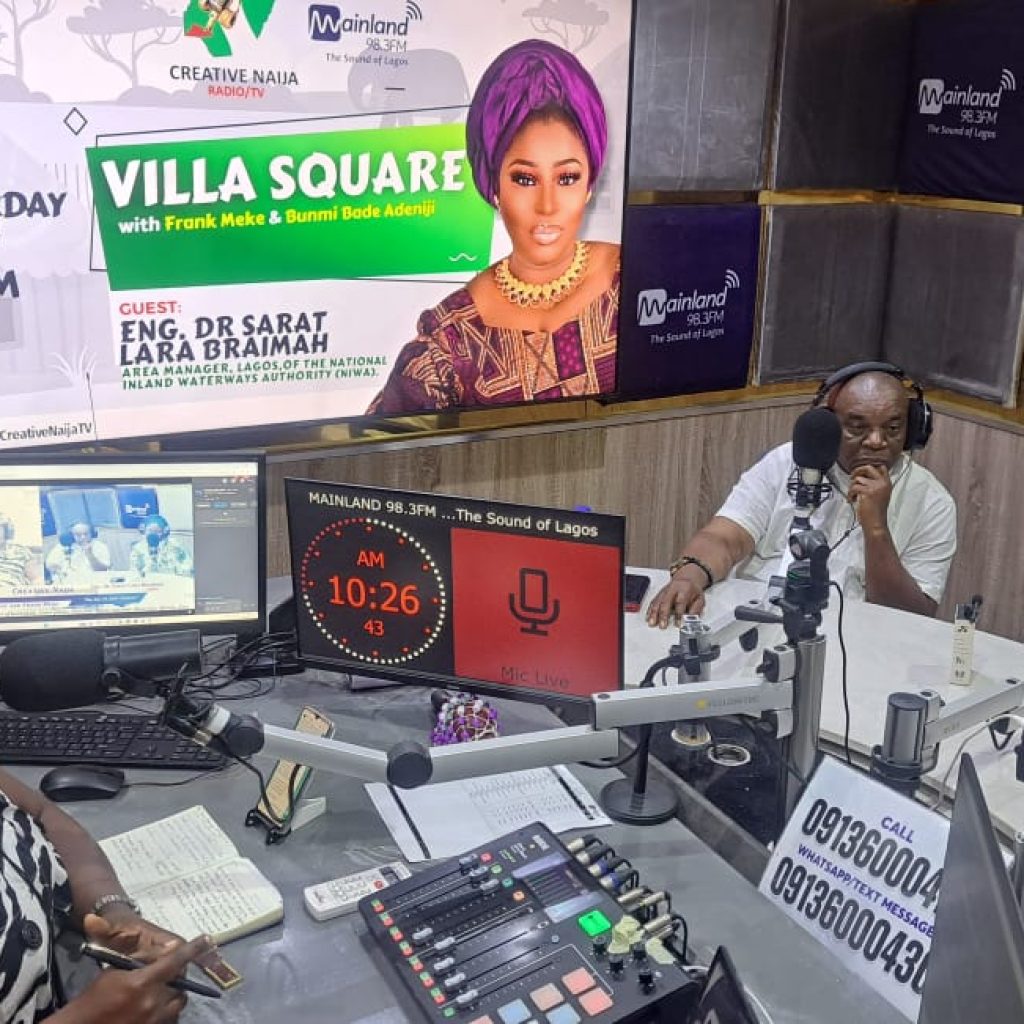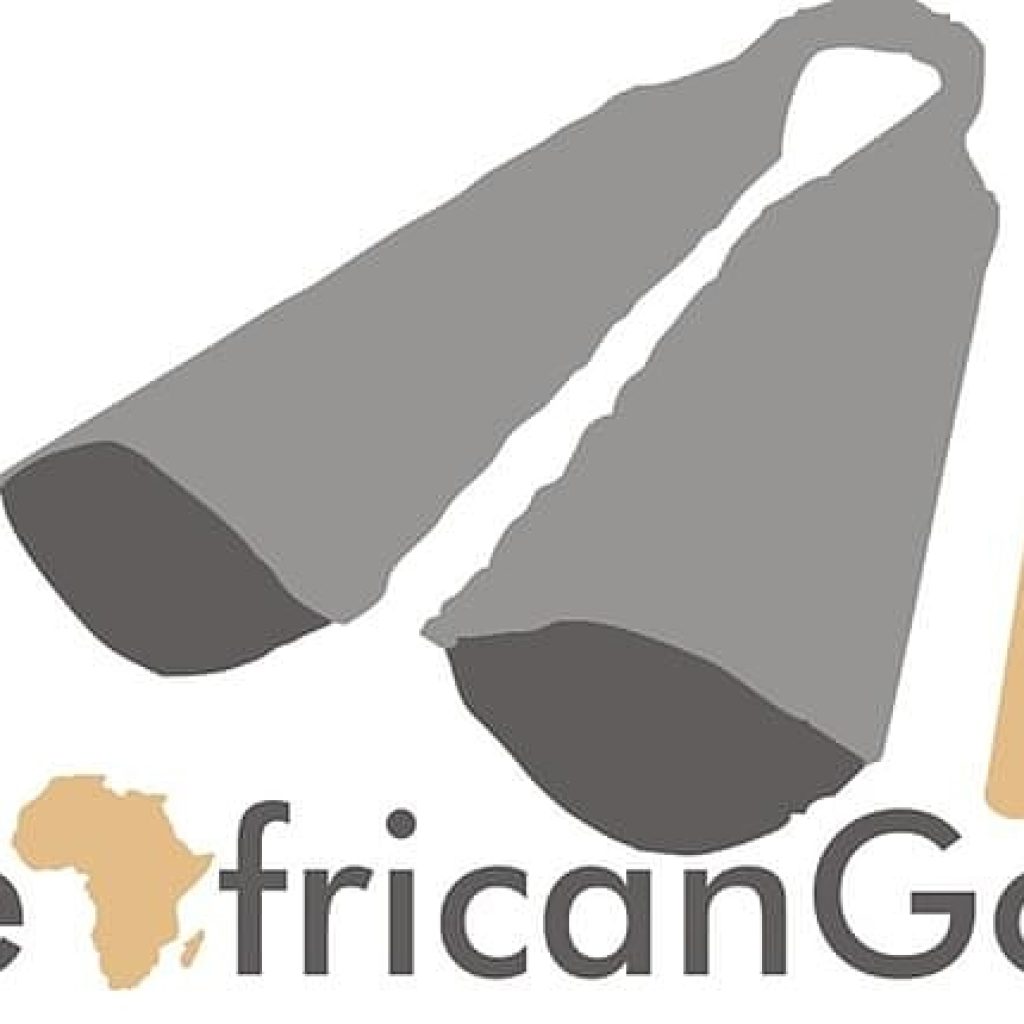
By Onyeka Ezike
The Area Manager, Lagos of the National Inland Waterways Authority (NIWA) Eng. Dr. Sarat Lara Braimah said that the agency has zero tolerance to none compliance with safety regulations in the waterways and as she noted that NIWA has begun training for boat captains and boat operators within the Lagos water corridor to reduce the rate of boat mishaps in the waterways.
Throwing more light on the development within the Lagos waterways corridor, Eng. Dr. Sarat Lara Braimah, who was a special guest on Creative Nigeria, a weekly Cultura tourism magazine program with special segment on brown water economy on Mainland 98.3 FM, Lagos anchored by veteran award-winning cultural tourism journalist, Frank Meke and Bunmi Bade Adeniji every Thursday, noted that NIWA is more interested in training and retraining of boat operators, hence the reason for the opening of a training center in Lagos.

Speaking on previous challenges faced by NIWA regarding boat mishaps, she said “Yes there have been a lot of challenges in the past on the management of the Inland Waterways, we already know that we had so many boat mishaps in the past, but as an agency of purpose, we came up with three strategies on how to combat that, we opened a training center in Lagos and we are still training the boat captains. Our research has shown that most boat mishaps are a result of human errors, mostly the carelessness of boat captains and the owners”
“From our statistics, we were able to find out the causes, and we are trying to provide solutions to these challenges. The major problem we had was that most of these boat captains were not well trained, they didn’t have formal education, and most of them would just say because my father did this, and handed it over to me, and therefore I must run inside the water,. some say because I was born beside the water, therefore I can do this. So those techniques of being on the waterways are not found in them, making them a risk to lives on the waterways. We made training compulsory for all boat operators and urged owners of boats to bring their boat captains for training. If not, the boat will not be registered.
Since this was done, we have recorded about eighty per cent compliance, which is the reason for the reduction number of boat mishaps in Lagos waterways. ” She added, further explained
On regular sensitisation outreach, engineer Sarat Braimah noted that the agency is Catholic on the issue ” we engage in sensitization programmes at least twice a month, the Corporate Affairs department and the IPS formed a team and they are always on every jetty to sensitise them on what to do in case of an emergency on the waterways. Most people believe that the life jacket does not have an expiring date, but through our sanitation agenda, we have been able to educate the public and operators alike that life jackets have an expiring date. Before using any life jacket, check the date. The expiring date is always written boldly.
Our research also revealed that there are a lot of substandard life jackets in the market. Another development in NIWA is the task force and River Marshals, who are always on the ground to destroy substandard life jackets, we have had cases whereby local tailors are used to sow life jackets, making them risky and unsafe for usage.
“For now, we are seeing a lot of changes, and this year, the transportation code was presented, and it was made a law.
The Inland Waterways Transportation Code is a law that seeks to regulate operations on the waterways and punish offenders who break safety rules and regulations guiding the waterways. It states out penalty for every offence committed. For Instance, If you operate late hours there will be a penalty for it, if you drop anything in the waterways, there is a penalty attached to it, there is a penalty for overloading of boat(s,), and operating a boat without a life jacket also attracts a penalty.
The transportation code will help maintain sanity on the waterways. That is why we have the River Marshals, Marine Police, National Inland Waterways Police, and the Nigeria Navy to enforce total compliance.

”Previously, we had a case whereby a boat carrying primary school pupils was caught without a life jacket, and the captain of the boat was arrested for endangering the lives of those children. We had to transfer the case to the appropriate authority, but now that we have a transportation code, cases like that will just go to court directly.
“We also engage in staff training, and sometimes we send them abroad just to prepare them for the task ahead. , we are also working with the Police, navy, and Marine Police on enforcement.
She appealed to the federal government to fund the agency and also develop Inland Waterways, stating that the government will generate more revenue from Inland Waterways.
